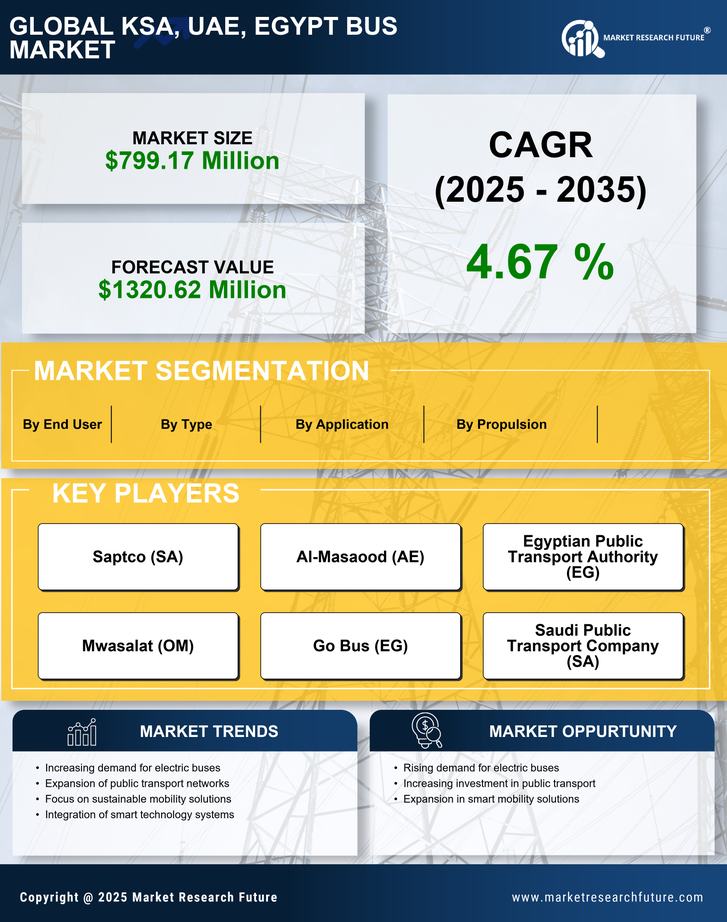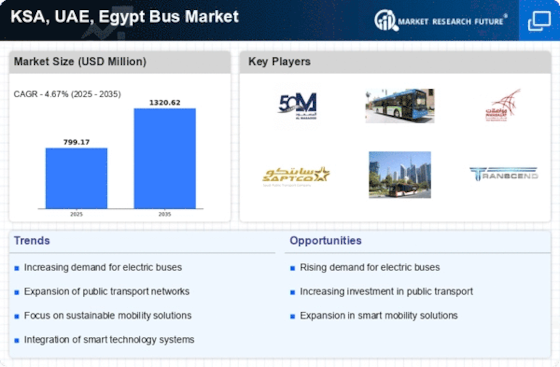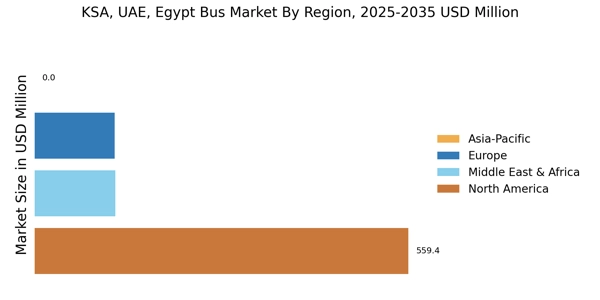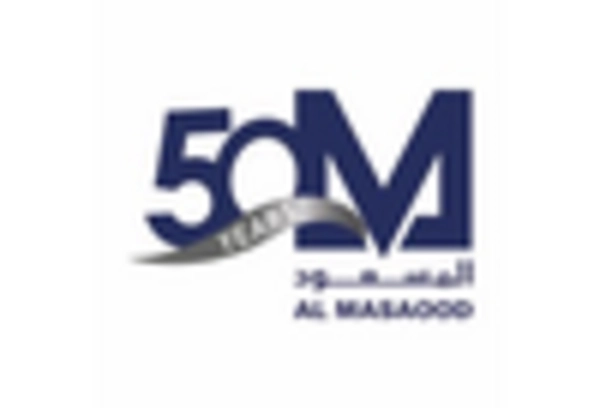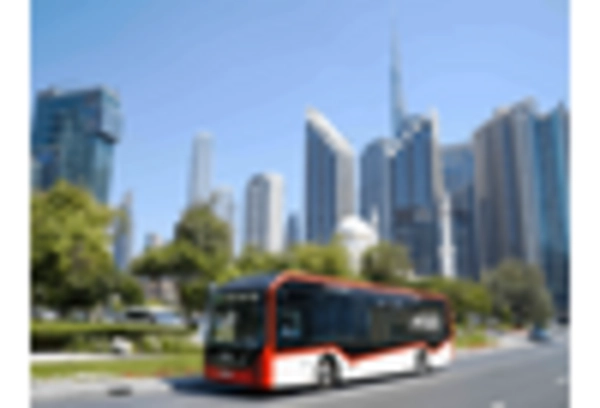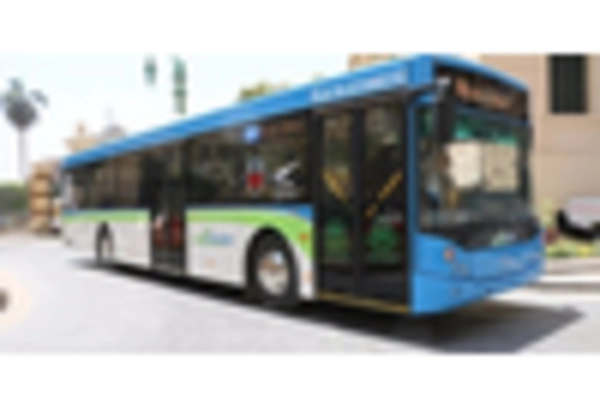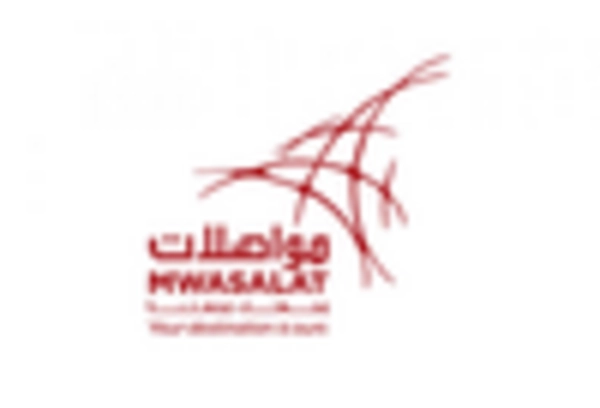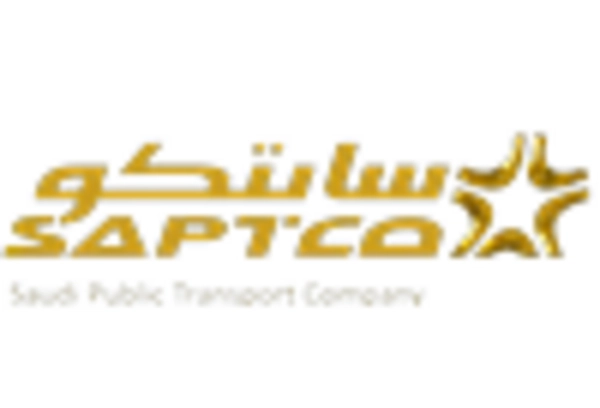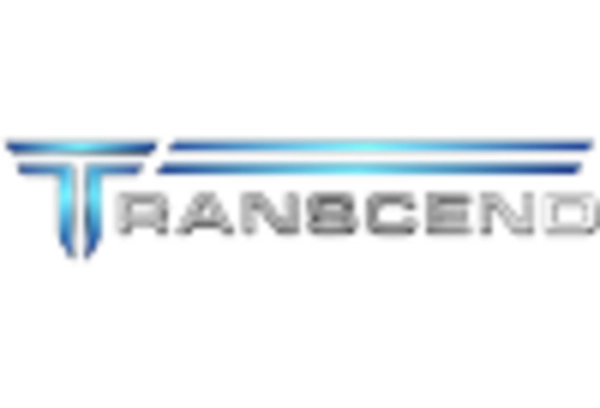Urbanization and Population Growth
The rapid urbanization and population growth in KSA, UAE, and Egypt are driving the demand for public transportation, particularly in the KSA, UAE, Egypt Bus Market. As cities expand, the need for efficient and reliable bus services becomes increasingly critical. For instance, the population in Saudi Arabia is projected to reach approximately 40 million by 2030, necessitating enhanced public transport systems. Similarly, the UAE's population is expected to grow, with Dubai alone anticipating a significant increase in residents. This urban influx creates a pressing need for comprehensive bus networks to alleviate traffic congestion and provide accessible transportation options. Consequently, the KSA, UAE, Egypt Bus Market is likely to experience substantial growth as governments invest in expanding and modernizing bus fleets to accommodate the rising demand.
Government Initiatives and Investments
Government initiatives and investments play a pivotal role in shaping the KSA, UAE, Egypt Bus Market. In recent years, both KSA and UAE have launched ambitious public transport projects aimed at enhancing urban mobility. For example, the Saudi Public Transport Authority has outlined plans to invest heavily in public transport infrastructure, including bus networks, to improve connectivity across cities. In Egypt, the government has also prioritized the development of public transport systems, with significant funding allocated to modernize bus fleets and expand routes. These initiatives not only aim to improve public transport efficiency but also to promote sustainable urban development. As a result, the KSA, UAE, Egypt Bus Market is poised for growth, driven by these strategic investments and policies that prioritize public transportation.
Economic Growth and Tourism Development
Economic growth and tourism development are significant factors influencing the KSA, UAE, Egypt Bus Market. The ongoing economic diversification efforts in these countries are leading to increased investments in infrastructure, including public transport systems. For instance, the UAE's tourism sector is booming, with millions of visitors expected annually, necessitating efficient transportation options. The Saudi Vision 2030 plan also aims to boost tourism, which will likely increase demand for reliable bus services. As more tourists seek convenient transportation, the KSA, UAE, Egypt Bus Market is expected to expand, driven by the need to accommodate both local residents and international visitors. This growth presents opportunities for bus operators to enhance their services and cater to a diverse clientele.
Technological Advancements in Transportation
Technological advancements are revolutionizing the KSA, UAE, Egypt Bus Market, enhancing operational efficiency and passenger experience. The integration of smart technologies, such as real-time tracking systems and mobile applications, is becoming increasingly prevalent. For instance, many bus operators in the UAE are adopting smart ticketing solutions, allowing passengers to pay seamlessly through mobile devices. Additionally, the implementation of GPS tracking systems enables better route management and reduces waiting times for passengers. These innovations not only improve service quality but also attract more users to public transport. As technology continues to evolve, the KSA, UAE, Egypt Bus Market is likely to witness further enhancements, making bus travel more appealing and efficient for commuters.
Environmental Sustainability and Green Initiatives
Environmental sustainability is becoming a crucial driver in the KSA, UAE, Egypt Bus Market. Governments in these regions are increasingly focusing on reducing carbon emissions and promoting eco-friendly transportation solutions. For example, the UAE has set ambitious targets to reduce its carbon footprint, leading to investments in electric and hybrid buses. Similarly, KSA is exploring sustainable transport options as part of its Vision 2030 initiative, which emphasizes environmental stewardship. The introduction of green buses not only aligns with global sustainability goals but also enhances the attractiveness of public transport. As awareness of environmental issues grows, the KSA, UAE, Egypt Bus Market is likely to see a shift towards more sustainable practices, potentially reshaping the future of public transportation.
